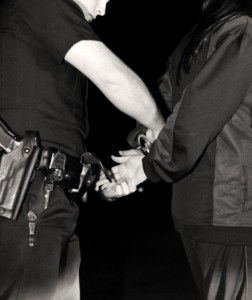By Leischen Stelter
Last week, the U.S. Supreme Court heard oral arguments for a case that could impact police department’s DUI procedures. Specifically, the Court will decide whether police must get a warrant before they order a blood test from an unwilling suspect.

In the case of State of Missouri v. Tyler McNeely, Missouri State Highway Patrol Trooper Mark Winder pulled over Tyler McNeely for excessive speed, according to this article in PoliceOne. McNeely appeared intoxicated and failed field sobriety tests. He also had two previous drunken-driving convictions.
McNeely refused to submit to a breathalyzer, so Officer Winder arrested him and drove him to a hospital where he ordered staff to take a blood sample without consent. The result of his blood-alcohol content was .154, far above the .08 legal limit.
The Missouri Supreme Court found that police needed a warrant to take blood from a suspect and upheld an order throwing out the results of the blood test.
There seems to be little doubt that Officer Winder had enough evidence to request a warrant for a blood test, but he did not take those steps. There was some indication from the justices during oral arguments that police officers should at least make the effort to get a warrant for a blood test.
What’s at Stake?
Police officers know that getting a warrant can be time consuming, even if all things go well.
“Evidence could be long gone if an officer is required to get a warrant,” said Terri Wilkin, who spent 26 years as an officer with the Maryland State Police. “By the time the officer gets the warrant, the blood level could be greatly diminished.”
Wilkin is currently a lawyer in Maryland in the Federal United States District Court for the District of Maryland. She is also the program director for Legal Studies and Emergency & Disaster Management at American Public University System. She hopes the U.S. Supreme Court will overrule the Missouri court’s decision and not mandate officers to get a warrant for a blood test in cases that meet certain criteria.
The Obama administration also urged the justices to reject the state court decision and instead allow police to forgo an often time-consuming process of obtaining a warrant, according to this article. The administration cited the fact that in 2010, more than 10,000 people were killed in alcohol-related car crashes.
A decision from the court is expected this summer.
Comments are closed.